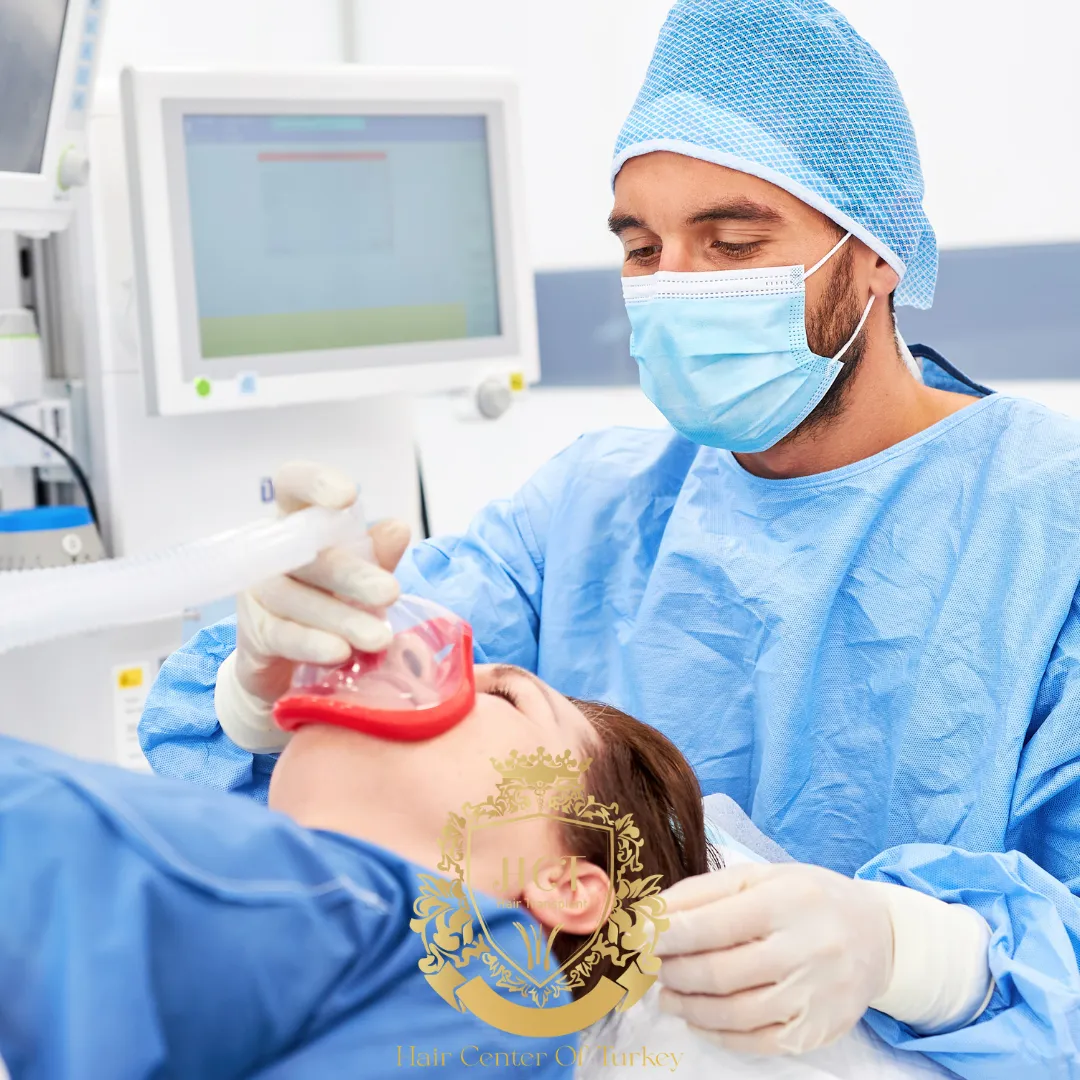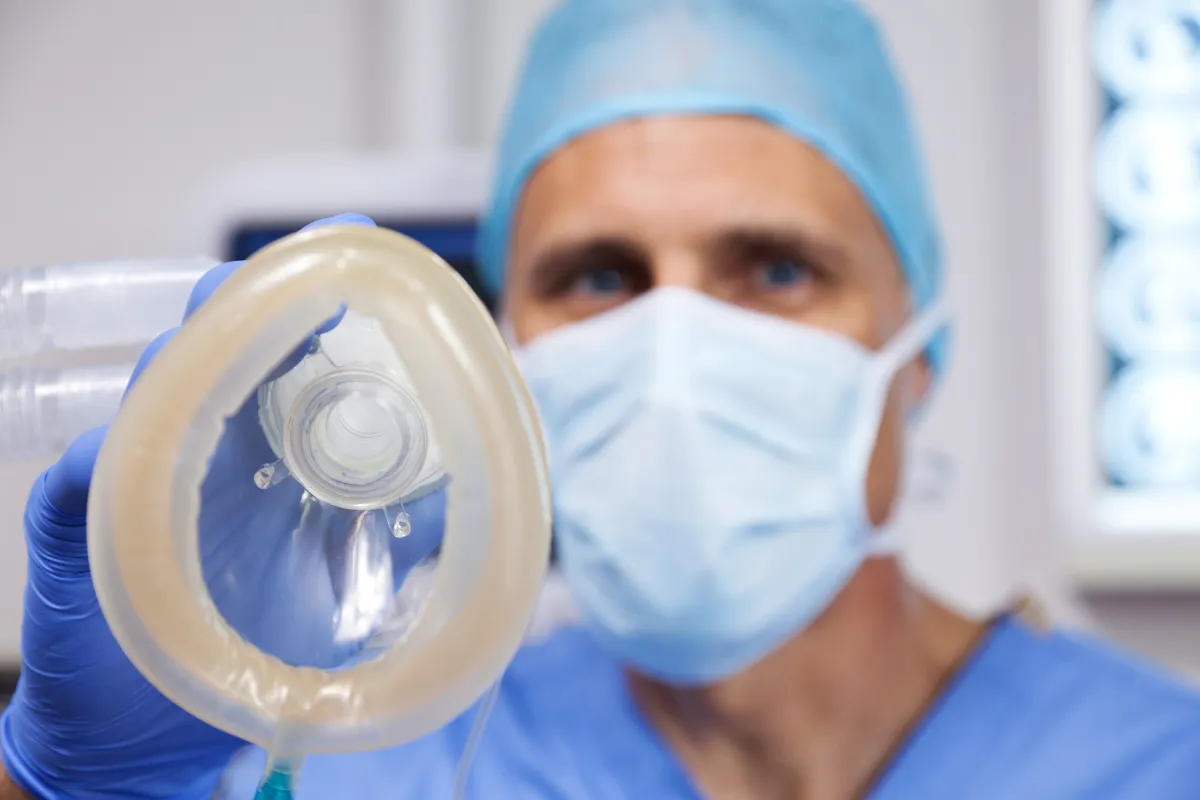
Can Hair Transplantation Be Performed Under General Anesthesia?
Yes, a hair transplant can be performed under general anesthesia in select cases, but it’s not the standard approach. Most procedures are safely done with local anesthesia, sometimes with mild sedation for comfort. General anesthesia may be considered for specific medical or anxiety-related reasons and usually requires a hospital-level setting.
Table of Contents
Why Local Anesthesia Is The Standard For Hair Transplants
Hair transplant procedures like FUE and DHI are minimally invasive and focus on the scalp. Local anesthesia numbs the treatment area while you stay awake, which keeps recovery smoother and avoids the higher risks that come with full anesthesia.
Many patients are surprised by how manageable the experience is. Once the scalp is numb, discomfort is typically limited to brief pressure sensations or movement.

What General Anesthesia Means In This Context
General anesthesia uses medications that put you into a controlled, unconscious state for surgery. It requires close monitoring of breathing, heart function, and vital signs, usually by an anesthesiologist.
Because hair transplantation is usually not a “major surgery” in the traditional sense, general anesthesia is rarely the first choice.
Is General Anesthesia Common In Hair Transplant Surgery?
In most clinics, no.
The majority of hair transplants are completed with local anesthesia, sometimes paired with light sedation if a patient is very anxious. General anesthesia is generally reserved for exceptional circumstances, not routine cases.

When General Anesthesia Might Be Considered
A clinic may consider general anesthesia when local anesthesia (with or without mild sedation) is not suitable.
Possible reasons include
- Severe procedural anxiety that can’t be managed with reassurance or mild sedation
- Medical conditions that make it difficult to remain still for long periods
- Complex cases where an anesthesiologist recommends it after evaluation
This decision should be made after a full medical review, not as a convenience upgrade.
Downsides And Risks Of General Anesthesia For Hair Transplants
General anesthesia can be safe when properly managed, but it introduces unnecessary complexity for many hair transplant patients.
Common disadvantages
- Higher medical risk: Greater cardiovascular and respiratory risk compared to local anesthesia, especially with underlying conditions
- Longer recovery: Grogginess, nausea, or dizziness can occur and may last for hours
- Higher cost: Additional staff, equipment, and monitoring typically increase the total price
- Facility requirements: Often needs a hospital-grade operating environment rather than a standard clinic setup
Safer Alternatives That Still Improve Comfort
For patients who worry about pain or anxiety, there are options that usually deliver the same comfort without full general anesthesia.
Sedation With Local Anesthesia
Some clinics offer mild or “twilight” sedation alongside local anesthesia. You remain breathing on your own and can respond if needed, but you feel calmer and less aware of time passing.
Anxiety Support Before The Procedure
Clear pre-op education, step-by-step explanations, and doctor-approved medication (when appropriate) can make a big difference. Many people feel far more comfortable once they understand what the day will actually look like.
What To Ask Your Clinic Before Choosing Anesthesia Type
Use these questions to make the decision based on safety, not marketing.
- Who evaluates whether I’m a candidate for sedation or general anesthesia?
- Will an anesthesiologist be present, and what monitoring will be used?
- Where will the procedure be performed (clinic vs. hospital-grade facility)?
- What is the recovery process for my chosen option?
- What are the risks for my medical history and current medications?
FAQs
Do you go under general anesthesia for a hair transplant?
No; hair transplants usually use local anesthesia, with optional mild sedation.
How painful is hair transplant anesthesia?
Local injections sting briefly; discomfort is mild to moderate and short-lived.
Are you awake for hair transplant surgery?
Yes; you’re usually awake, sometimes lightly sedated, during hair transplant surgery.
How bad is the pain after a hair transplant?
Pain is usually mild; soreness and tightness peak first 24–72 hours.
How to sleep when you have had a hair transplant?
Sleep on your back with head elevated; avoid touching or rubbing grafts.
Where is anesthesia injected during a hair transplant?
Anesthetic is injected into the scalp around donor and recipient areas.
How long does a hair transplant take?
It typically takes 4–8 hours, depending on graft number and technique.




